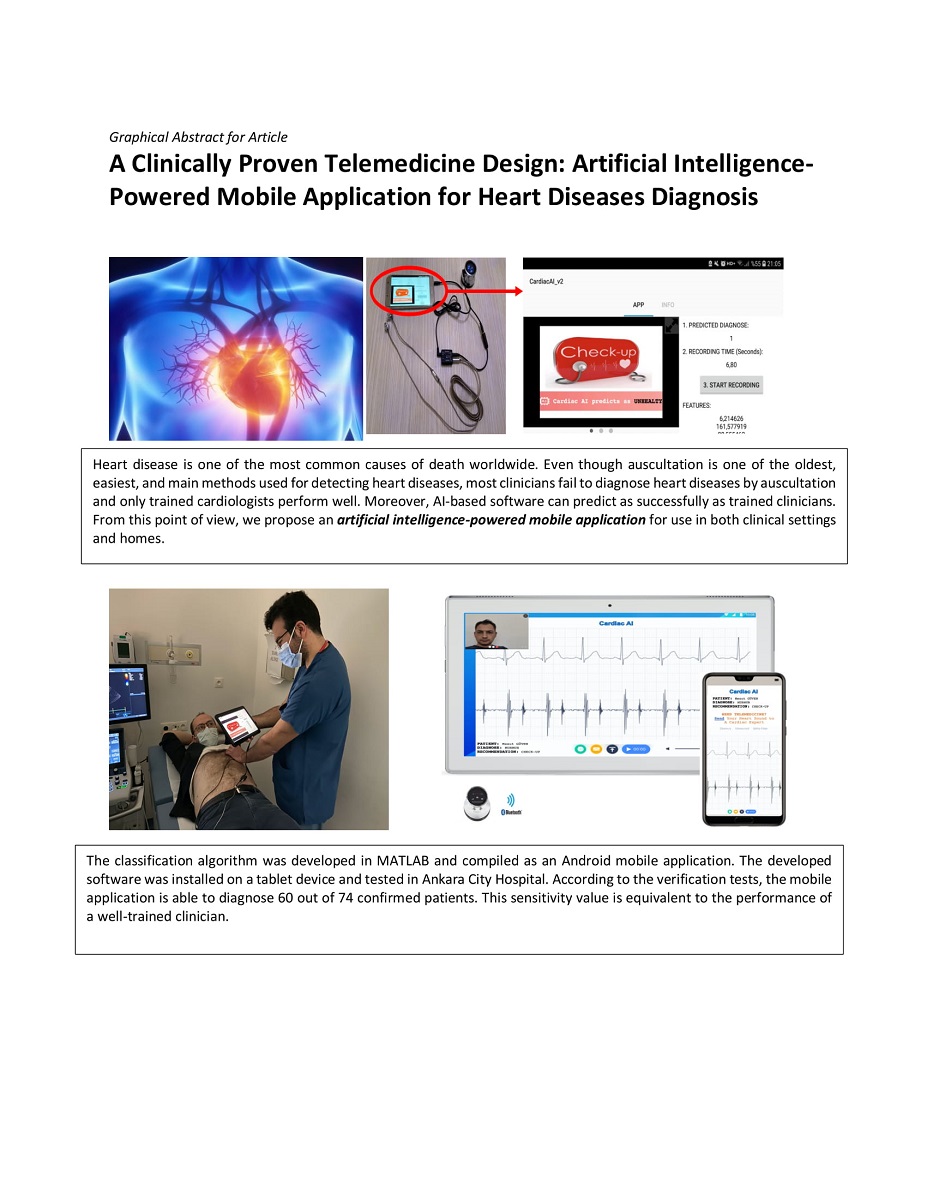One of the oldest and common methods of diagnosing heart abnormalities is auscultation. Even for experienced medical doctors, it is not an easy task to detect abnormal patterns in the heart sounds. Most of the digital stethoscopes are now capable of recording and transferring the heart sounds. Moreover, it is proven that auscultation records can be classified as healthy or unhealthy via artificial intelligence techniques. In this work, an artificial intelligence-powered mobile application that works in a connectionless fashion is presented. According to the clinical experiments, the mobile application can detect heart abnormalities with approximately 92% accuracy which is comparable if not better than humans since only a small number of well-trained cardiologists can analyze auscultation records better than artificial intelligence. Using the diagnostic ability of artificial intelligence in a mobile application would change the classical way of auscultation for heart disease diagnosis.

